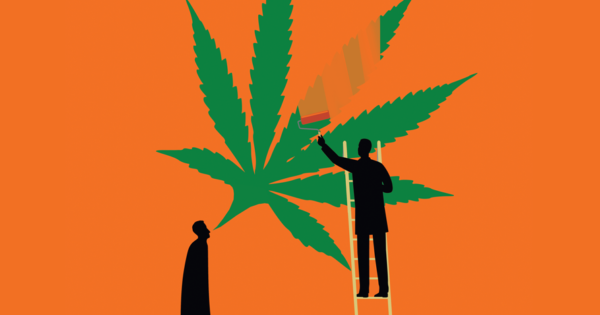
At this moment, the entire country is engaged in digesting the daily chaos of multiple crises. With everything that’s going on, it’s easy to miss some impactful changes. These changes could lead to difficult outcomes for those in the cannabis industry. In order to fully understand how to adapt, it’s important to understand the backstory.
On March 5, Twitter instituted a policy intended to curtail “synthetic and manipulated media.” The initiation of these new guidelines led Twitter to provide additional context on content deemed misleading. One of the conditions Twitter chose to monitor are messages that can be construed as voter suppression or intimidation. Notably, cannabis-related content is not a target of Twitter’s new policies.
Over the last decade, President Donald Trump has become the unofficial face of Twitter, given his frequent use of the social media platform. However, his relationship with Twitter and other leading social media outlets has been contentious, with Trump often alleging an anti-conservative bias. Back in May, Trump tweeted two messages with claims about the potential for election fraud via mail-in ballots. Deeming the claims spurious, Twitter placed a notification underneath both tweets allowing users to “get the facts about mail-in ballots.” Two days after these fact checks, Trump issued an executive order ostensibly intended to prevent speech restrictions on political or other types of online discourse. More recently, Twitter put a label on one of Trump’s tweets for “glorifying violence” following protests in Minneapolis.
Fundamental to Trump’s executive order on preventing online censorship is the distinction between online spaces with nonexistent or minimal oversight of user content, like Twitter, and those with curated content screened through an editorial process by a publisher. This distinction was codified into law in section 230 of the 1996 Communications Decency Act, which protects platforms like Twitter from liability for content created by their users.
For example, when dispensaries post pictures of flowers or edibles on their social media pages, it has been established that companies like Twitter weren’t responsible for or seen as endorsing this material. However, if Trump’s new executive order isn’t disregarded by the FCC or defeated in court, online spaces like Twitter may become legally akin to publishers, incentivizing social media companies to regulate speech on their platforms even further.
This presents a major challenge for cannabis marketers who have been harnessing the immense reach of channels like Twitter or Instagram.
At present, social media abounds with large cannabis companies and smaller mom and pop shops that use these platforms to share cannabis-related content. Given that cannabis remains illegal at the federal level, Trump’s executive order may potentially silence cannabis-related businesses from using these platforms to connect with customers. Many small businesses in the cannabis space will take a massive financial hit because of this reduced capacity to connect with customers.
Morris Beegle, co-founder and president of We Are for Better Alternatives, said in a recent conversation that this order will not only have a negative impact on his small businesses but that “further restrictions on cannabis- or hemp-related content due to this executive order will absolutely obstruct and impact the potential growth of this industry.”
Brands and savvy marketers in the cannabis space may need to begin exploring novel approaches to advertising their products in case Trump’s order becomes entrenched as the law of the land. Direct mail approaches through postcards or other marketing collaterals are an excellent option for businesses in the cannabis space with an existing customer base.
Prospective customers can also easily be acquired through purchasing customer lists and leads from a data company. These results are likely to yield an excellent ROI; according to the United States Postal Service, direct mail recipients purchased 28% more items and spent 28% more money than people who did not receive direct mail and patronized the same business.
https://www.adweek.com/brand-marketing/what-cannabis-brands-can-do-to-navigate-trumps-social-media-executive-order/

